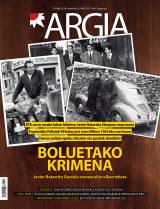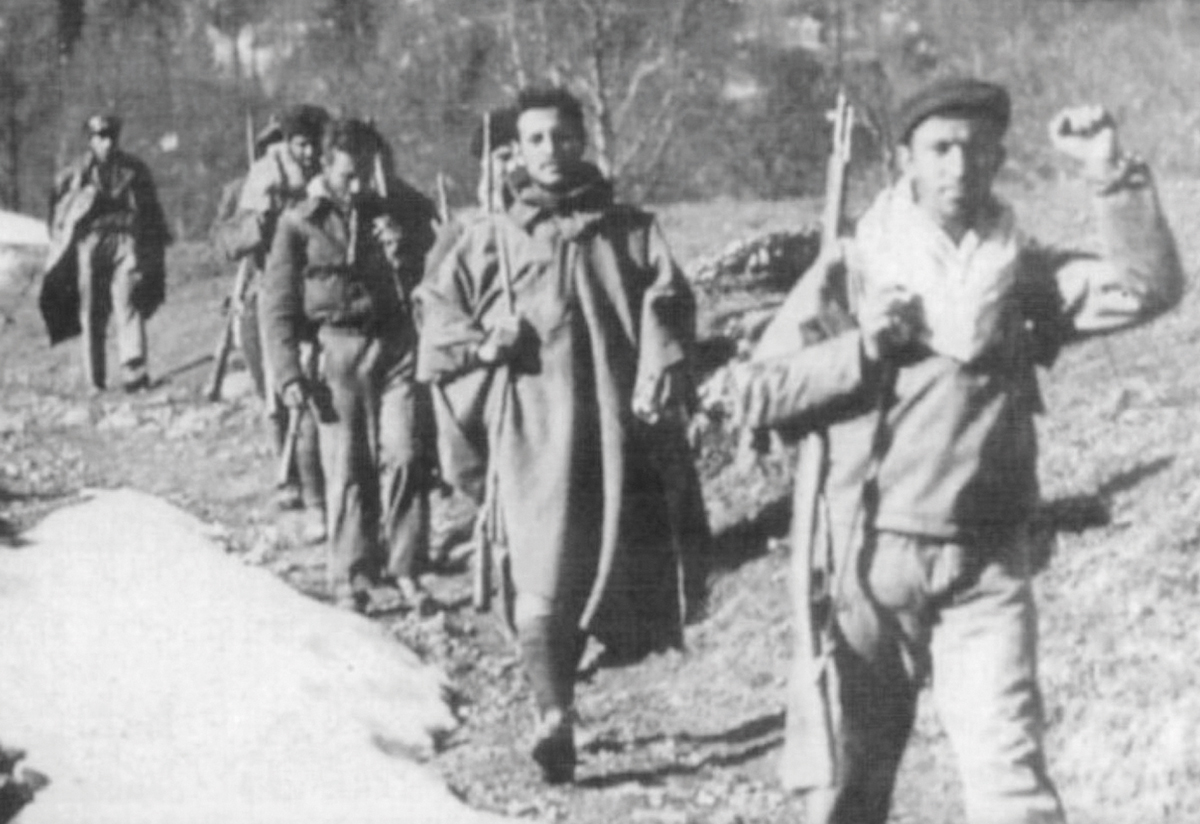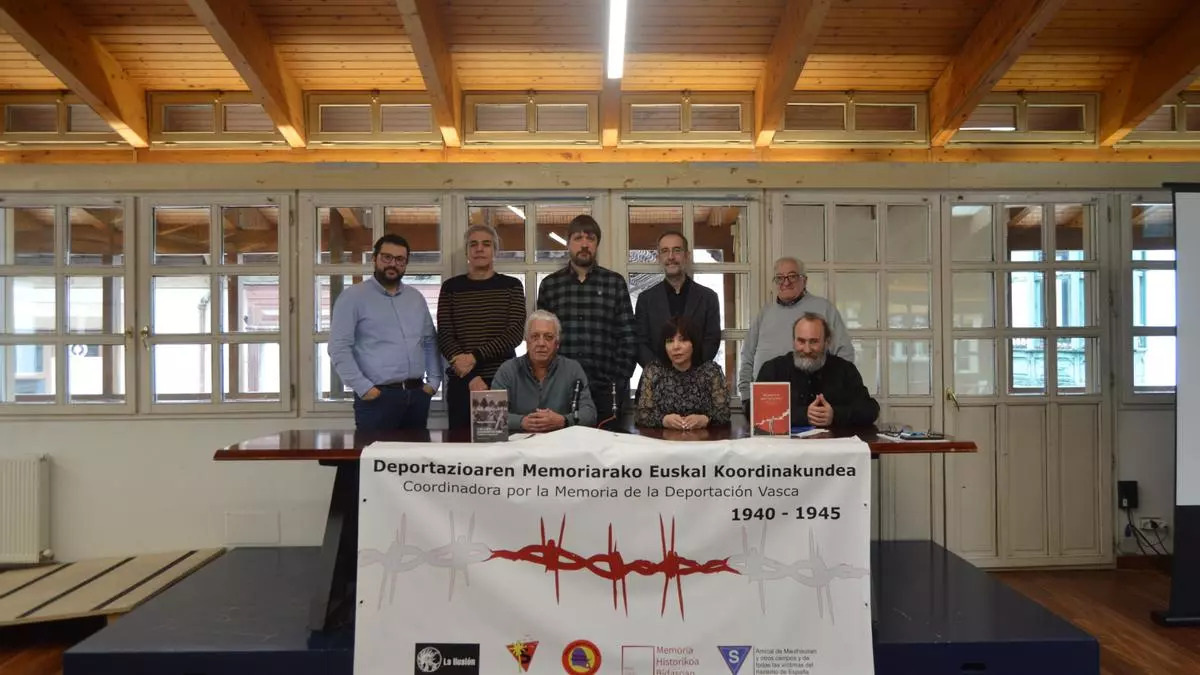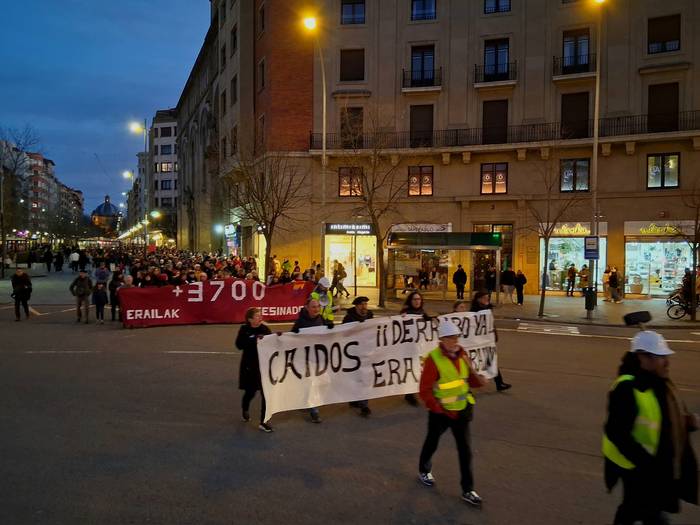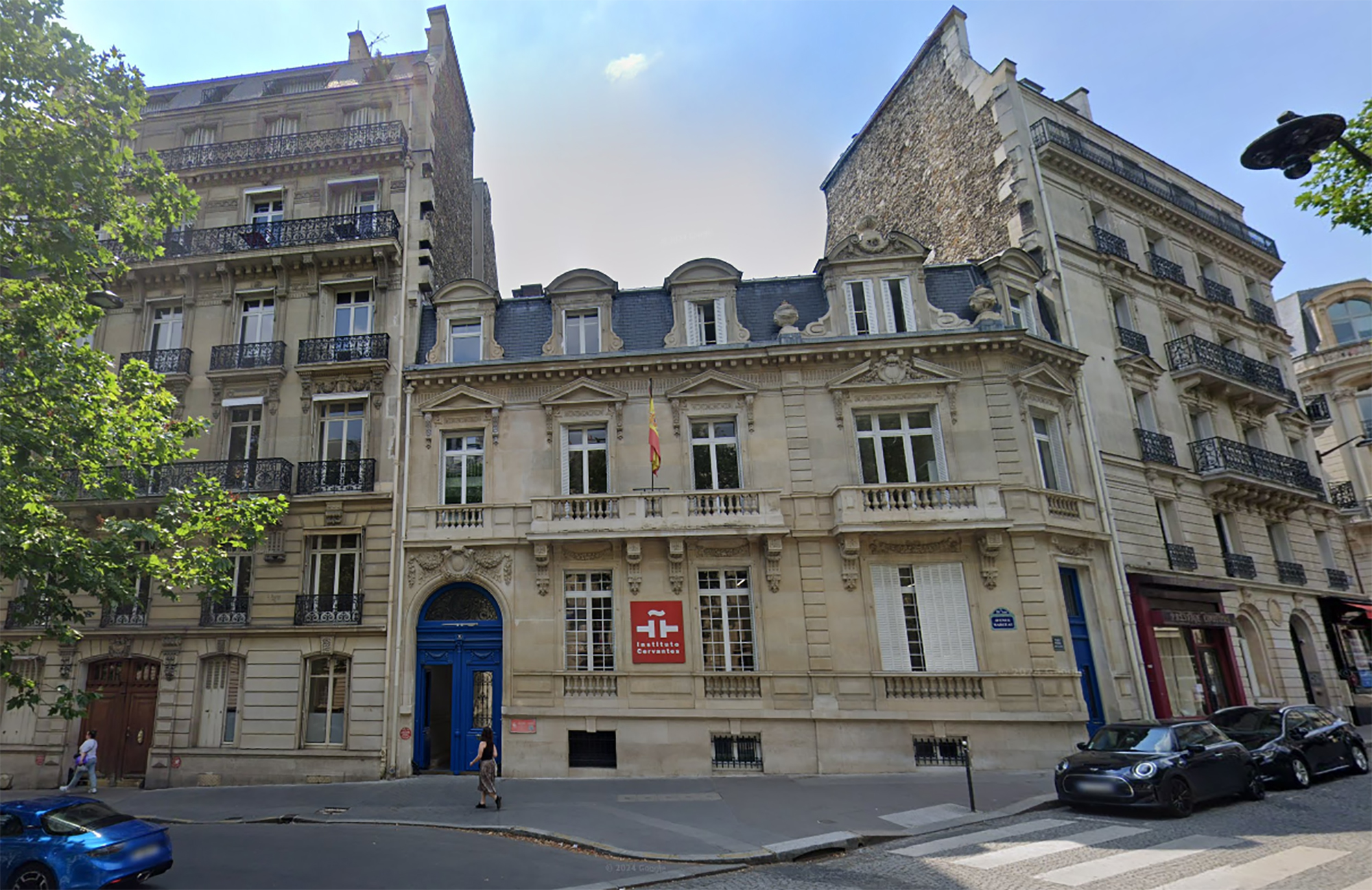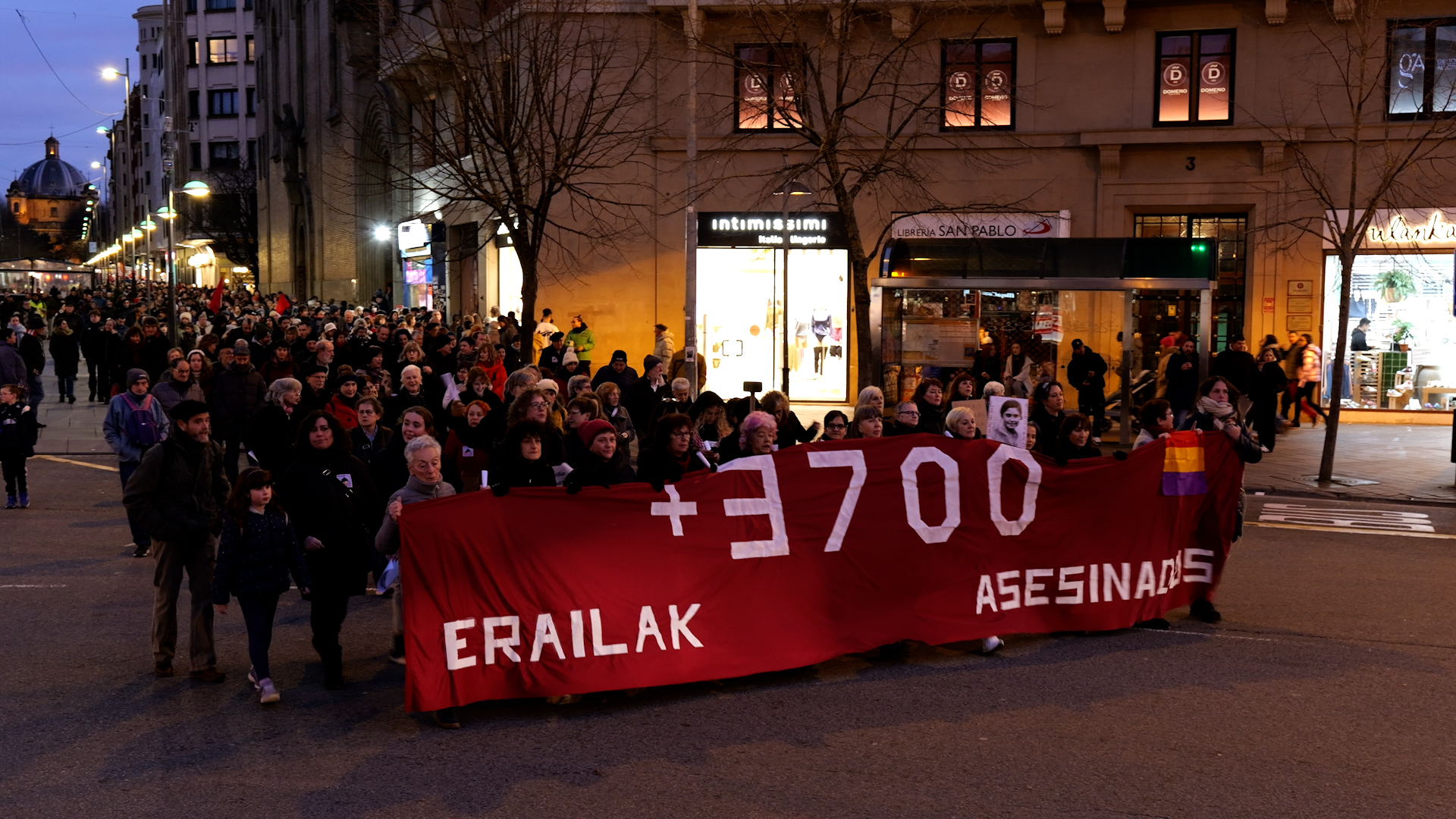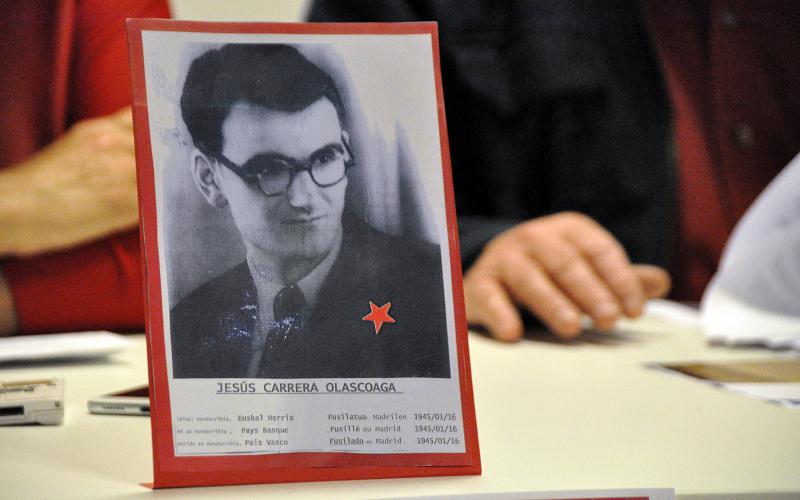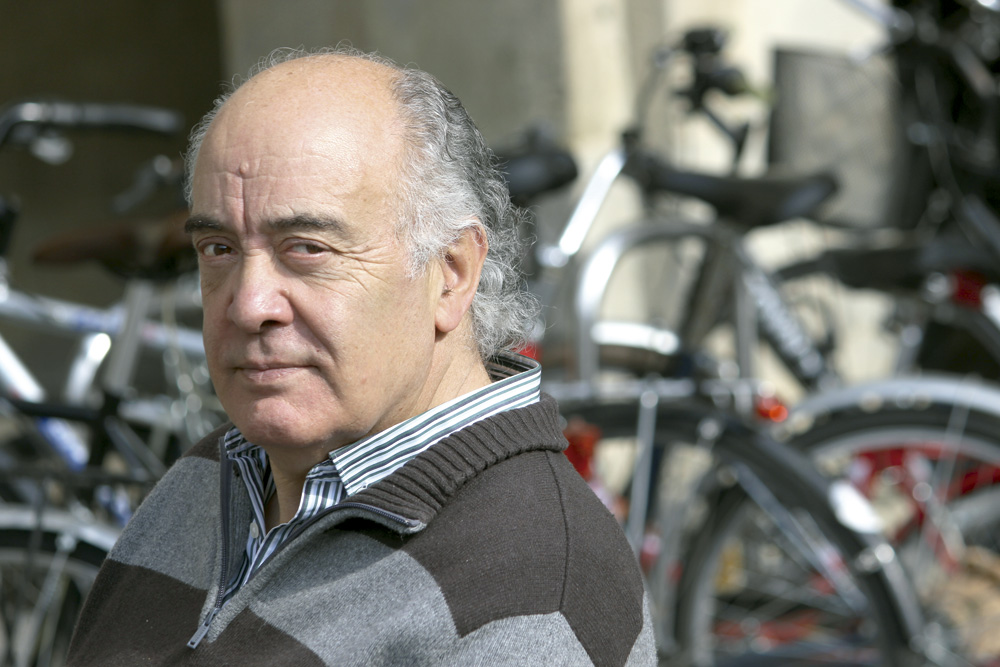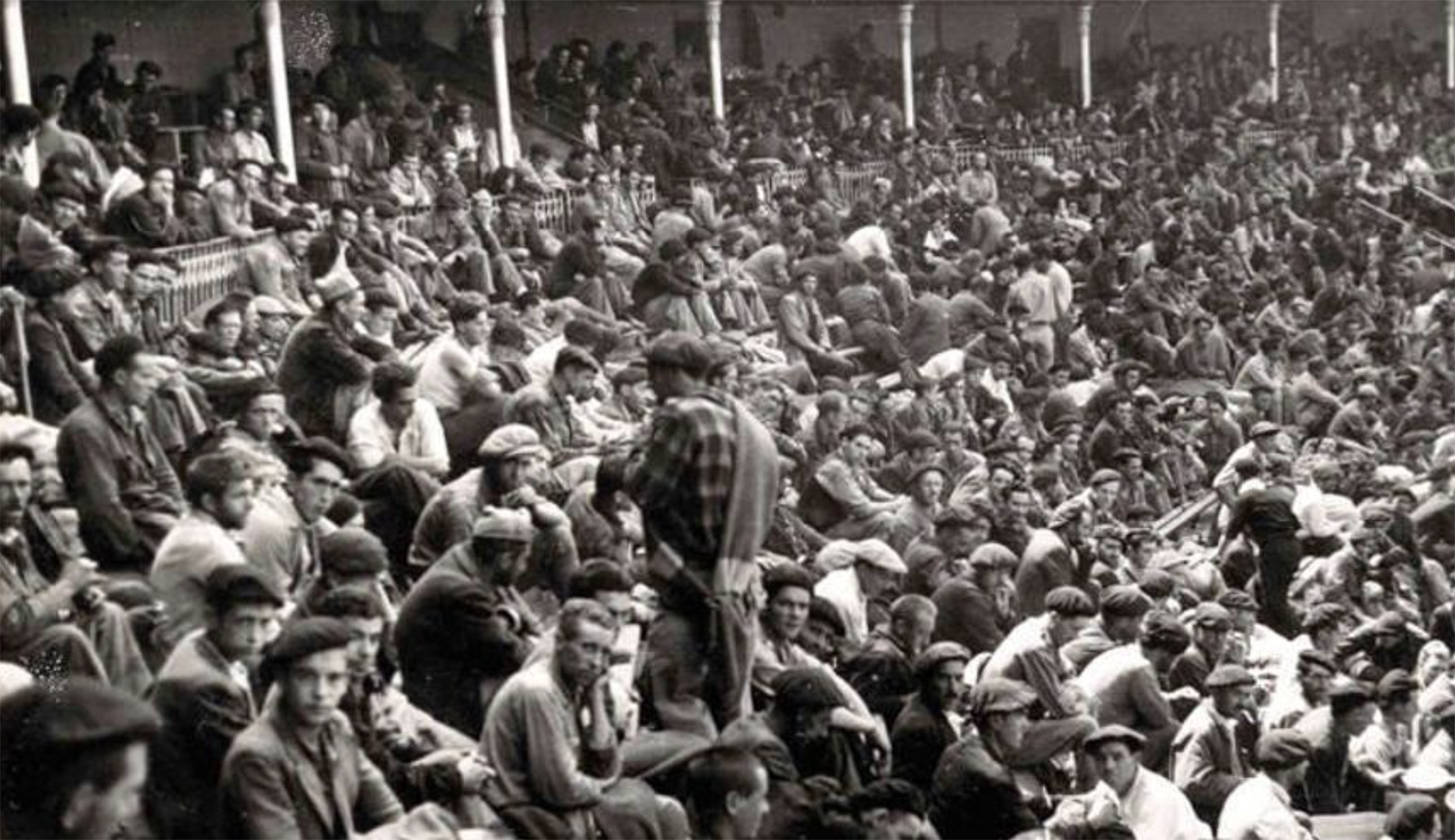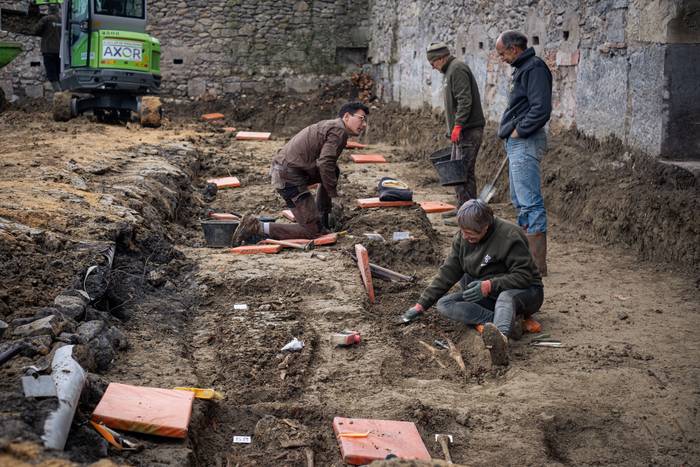"They killed his father, he was the victim, I am the harmed."
- His father, Javier Batarrita Elexpuru, was killed on 27 March 1961, in a control set by the Spanish Civil Guard in Bolueta (Bilbao). Kulpari's father, without guilt, was a "disgraceful accident", according to the Francoist authorities of the time. The son of the same name as the father, a nine-month-old boy, is the guardian of memory.
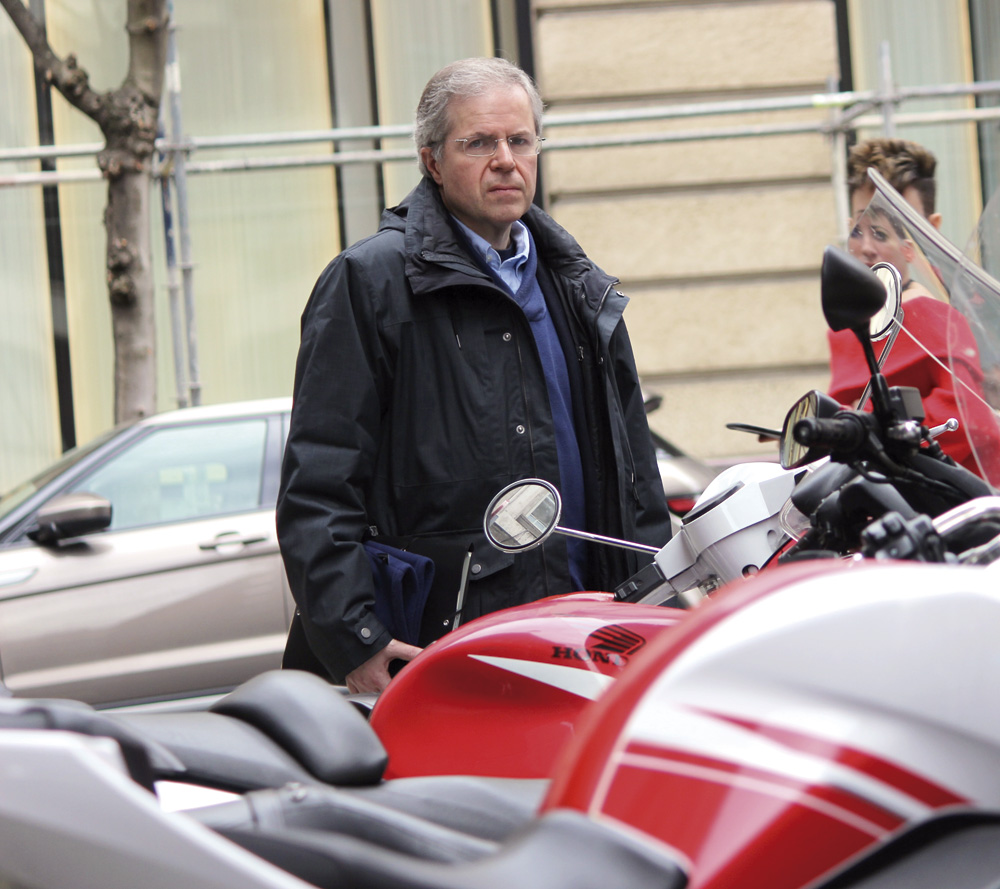
Abokatu da. Bederatzi hilabeteko zela hil zion guardia zibilak aita Boluetako Aginaga gasolindegian, bi lankiderekin batera Gasteizetik Bilbora zihoala. Bata larri zauritu zuten, onik irten zen hirugarrena. Gertatua desitxuratu, informazioa ezkutatu eta isilarazi nahi izan zuten orduko agintariek. Urte askoan ahaztua, argitara dator egia eta horrekin batera aitortza. Mina, ordea, sendaezina.
Born in 1960, your father was killed on 27 March the following year.
He was nine months old when his father was killed. I always knew that my father had been killed, killed by the police, not knowing why the police had killed him. But the circumstances were true. It was 1961, it was the time of the Francoist dictatorship, and because in war they had been killed in our house, so I believed it was all one, related all the deaths, both those of the war and those of my father, because at home they lived the same. Then I realized it wasn't the same.
When did you distinguish the deaths?
My father talked so much about war. Within the family and in the area, several deaths were recorded. In his father's story, his father's death was a kind of supplication. His grandfather, in fact, had been a communist and had militated in the Gipuzkoa Battalion. He ran the whole campaign in the north. He was one of the few who achieved the final victory in Santoña (Santander, Spain), before the Blaugrana team. He came to Avilés and got into a nursery. It was collected by the French coastguards and taken to Bordeaux. There, they entered the train and headed to Catalonia. He was in Barcelona, met and walked with the international brigades. However, he was a carabiner of the Republic. The border with Catalonia was monitored, one between Lleida and Andorra, and the other in Girona. Until the end of the war. At the end, he went to France, to the beaches of the Mediterranean. They grabbed him and sent him to Gurs.
How was your father's?
The Bolueta occurred on 27 March in the Biscay village. The day before, as he walks through the Zadorra, a servant, apparently not entirely full – he is called Vicente García Aguado – sees some talking and hears about bombs. I am referring to whether you are preparing any action. You tell the police, but don't believe it because it's crazy. The next day, in the area of Zadorra, in the same area of the day before, Gregorio Porcel Carrillo, the guard of the company Indauto, sees the arrival of a car. The car stops in the arcén and three men leave. Shortly afterwards another car arrives, on the part of Vitoria-Gasteiz, which stops next to the previous one. The driver shuts down, does a few words with the three men before and then the four enter the second car and head towards Vitoria-Gasteiz, leaving the first car. The guard of the company Indauto rejects the case and calls on the Civil Guard. The Civil Guard decides to carry out the operation, heads to Indauto, but when there are no cars, the two have already left, one to Vitoria and the other to Bilbao. The Lieutenant Colonel of the Civil Guard who has decided the operation informs the members of the following provinces and the chief officer of the Bizkaia Police organises Operation Bolueta.
After 7:30 pm on March 27, your father’s Peugeot arrives at the Aginaga de Bolueta gas station.
There were the civil guards. They order the car to stop. He stopped the car. The driver's father, sitting next to Martin Ballesteros, followed Larizgoitia. When the car stops, Ballesteros makes some movement, and the civil guard sees him suspicious. His father is ordered to get out of the car and, when he comes out, a voice – the armed police, of course – “it’s him! “It’s him!” he screams and the civil guard who has ordered his father to stop shooting. This guard has a Mauser in his hand, and with that shot, he takes almost his head off my father. Then the shots are repeated. According to the autopsy, the father has received a total of 49 gunshot shots. However, it was the first shot that made him a hole on one side of his head. My grandfather told me that he had gone to identify his father, that they didn't have him completely covered, and that he had been able to see the hole in his head. The first shot had killed my father.

.jpg)
that same car, Batarrita and his two companions were shot by the Municipal Police officers.
Your dead father, Martin Ballesteros seriously injured.
A bullet reached Martin Ballesteros, but in the dorsal spine. He had mutilated it forever. Only Larizgoitia had survived. He was in the back of the car and somewhere the car had made him a shield job.
They say the police forces left your father, Ballesteros and Larizgoitia there.
Gudari magazine then says people took them to the hospital.
Neighborhoods with low blinds? Gudari says a Izpizua took them to the hospital in Basurto.
In the documentary By whom the bell tolls the producers were two: Maite Esparza and Maite Ibañez. His father, seeing the documentary, told his daughter that he had witnessed Bolueta's. The police told them he remembered how they would knock down the blinds. They, for their part, came out of the house, went up to the next hill and saw everything. Undoubtedly, both the father and the two friends were collected by EGI staff and transferred to the hospital in Basurto, under false names, where they were admitted. There are not even pitos, an EGI militant would hardly have given his real name. The information was reported by these militants in Gudari, Lan-Deya (Emboscada sangrienta en Bilbao, he said) and in the work that has been published since then, either in the report of the Basque Government commission on the assessment of victims of police abuse, in the Gara newspaper of Iñaki Egaña, in the letter of Kike Santarén in Deia or in El Mundo. Another thing is what the newspapers of the time, La Gaceta del Norte, El Correo Español and ABC, brought out.
Did you fulfill the truth?
I think we can collect information from each other and form an image. They do not contradict each other. Each one has its own version, which is distorted, but among all they collaborate in the elaboration of a version. All versions are true, but they are all partial and also subjective. The most plausible version is completed among all. According to my interpretation, after having read this and that, the police were convinced that it was a command. "It's him! It’s him!” he knows who’s behind. Fernandez Soldevilla denies it, says they didn't look for ETA's, but they were looking for something, because my father, who was dead, was kicked. Larizgoitia was arrested, my father and Ballesteros stayed there. They were taken to the hospital.
What were the consequences of your father's death?
I don't know. I grew up without a father. I don't have memories, just a feeling, because I don't have experiences. In that, I've always felt different from the rest of the kids. Thinking about it, when friends started at school, "And your father what?" he said my father was dead, but I didn't like to talk about it.
Were you at home?
If I had to talk, I talked. Sometimes the issue came on its own, but it hurt us, it wasn't a matter of talking every day. We didn't elude him, but we didn't bring him into the conversation either, because it was painful, especially for the mother. When their father was killed, the grandmother – her mother’s mother, Ramona Oiarzabal – felt unwilling. He suffered a stroke, no doubt, due to a worsening of his mouth; however, he recovered… His father’s death lived traumatically in his home.
Is it still painful to talk about it?
My mother hurts a lot. For example, I have not mentioned court orders. I'm afraid. When they publish something in the newspapers, it doesn't bother me, because my mother doesn't read any newspapers. But when you watch something on television, it feels bad for two or three days. My mother is Maria Antonia Gaztelu.

I thought I'd talk to him.
I would be grateful if you did not try. The director of the Human Rights Office of the Basque Government, Inés Ibañez de Maeztu, was at home, talking to her mother. They went well. However, we were told that the mother had to appear before the committee, and we went and there, in front of the members of the committee, the mother. It was a pity. The mother burst into sobs. Manuela Carmena was chairman of the committee and she consoled her, going next to her mother.
Does it hurt you?
No. I have no experience. It is personal, familiar and important when it comes to the family, but above all, it is a historical fact. Part of the case is expanding now, it's advertising, but I've lived it with mediocre emotional neutrality. Dignified. When someone wants to know something, I have no objection to informing him. But talking to mom about this is impossible for me.
Despite this emotional neutrality, what feelings inspires your father's death?
It was part of repression. There have been as many repressions as you like in this town. Sometimes it has adapted to one another. The father's death resembles many other deaths. Unfortunately, it came to us. But I tell you that there are many.
Your father was killed. Who is the victim?
The dead, the wounded, the disabled... is always the victim. The rest of us are victims. In our case, the family members of the house are harmed, those who lost that person, those who lost their relationship with her, their personal referent. But we are not victims, we are harmed.
According to the speech that has been made violently, they are all victims.
It's a way of talking. Maybe our vocabulary is not rich enough, we're not in a way that specifies things, and we use what we have to talk about day to day. The victims ' family members are regarded as victims for the purpose of being able to receive the recognition, reparation and other rights incumbent upon them. Hence the word victim. If you asked him if I am a victim, I would say no, I am not a victim, but rather a victim. My father was killed, he was the victim, not me. I, the harmed.
What do you tell me about this? “We as victims…”.
You have the address of the Association of Victims of Terrorism AVT. I believe that the political parties have used the association, and the association has also left it to be used. That's where the speech is, but it's not expansive. The Association of Victims of Terrorism of 11 March, for example, does not identify with this speech.
What does it say about the statement made to it by the Basque Government?
We didn't expect it. I don't. We welcome it with gratitude, I do not know if we welcome it, but yes with gratitude. On the other hand, the experiences of the past were transferred to the present, especially in the case of the mother, and the mother went wrong. However, her mother was grateful for all that confession meant.
Did you know relatives of other victims through that recognition? Txikirenak, Antxone Telleria, Aunt de Otaegi…
Yeah, but we talked while we were having coffee. Brother of one, widow of the other… and we never mention what happened in the past, but what comes, we talk about what is going to be in the future.
Your father was killed, and that death caused the whole life of the family to come down...
Yes…
“Antonio Batarrita, 48 urte zituela hil zen. EAJko kidea zen, Eusko Jaurlaritzaren ordezkari izan zen zer edo zertan, eta Iparraldean babestu zuen bere burua. Gaixotu, eta Jaurlaritzak Bidarteko La Roseraie hotelean jarritako ospitalean operatu zuten, urdailetik. Egun berean, aleman gudarosteak sartu ziren herrian, eta korrika alde egin zuten mediku eta erizainek. Aitaita, operatu berri, hantxe, bestelako laguntzarik gabe, odolustu egin zen. Hil”.
“Concha Elexpuru Arbillaga zen, lehen Eusko Jaurlaritzaren garaian Bilboko hezkuntza arduraduna, Indautxuko eskoletako zuzendaria izana, eta Euskal eskolaren burua. Nire gurasoekin bizi zen. Aita hil zenean, ordea, amama alabarenera joan zen bizitzera. Ama eta biok, berriz, nire amaren gurasoenera. Amama Conchari oker handia egin zion aitaren heriotzak, bihotzetik ibili zen harrezkero, eta nik hamalau bat urte nituela, hil egin zen, bihotzeko eritasunaren ondorioz”.
Nire laguna zen, nire lagun maitea
Bizikleteroa, denon adiskidea,
Ideologietan etzen inoiz sartu.
Bakean bizi zen mundu guztiarekin,
gorriekin eta berde eta zuriekin.
Orok estimazio handia zioten.
Iluntze batean zetorren Bituritik
Automobilean. Bihotzean zekarren
Andrea laztantzeko gurari bizia.
Oraindik eztiot entzun inoiz inori,
bekatua dela, edo bidegabea,
esposari senarrak mosua liola.
(…)
Salvador Puig Antich frankismoaren kontrako militantea izan zen. Askapen Mugimendu Iberikoko kidea, 1973ko irailaren 25ean atxilotu zuten. Gerra-kontseilua egin zioten, eta garrotez exekutatu zuten handik sei hilabetera, 1974ko martxoaren 2an. Aurtengo otsailean baliogabetu du... [+]
Bilbo, 1954. Hiriko Alfer eta Gaizkileen Auzitegia homosexualen aurka jazartzen hasi zen, erregimen frankistak izen bereko legea (Ley de Vagos y Maleantes, 1933) espresuki horretarako egokitu ondoren. Frankismoak homosexualen aurka egiten zuen lehenago ere, eta 1970ean legea... [+]
Deportazioaren Memoriarako Euskal Koordinakundeak aintzat hartu nahi ditu Hego Euskal Herrian jaio eta bizi ziren, eta 1940tik 1945era Bigarren Mundu Gerra zela eta deportazioa pairatu zuten herritarrak. Anton Gandarias Lekuona izango da haren lehendakaria, 1945ean naziek... [+]
Pamplona, 1939. At the beginning of the year, the bullring in the city was used as a concentration camp by the Francoists. It was officially capable of 3,000 prisoners of war, at a time when there was no front in Navarre, so those locked up there should be regarded as prisoners... [+]









